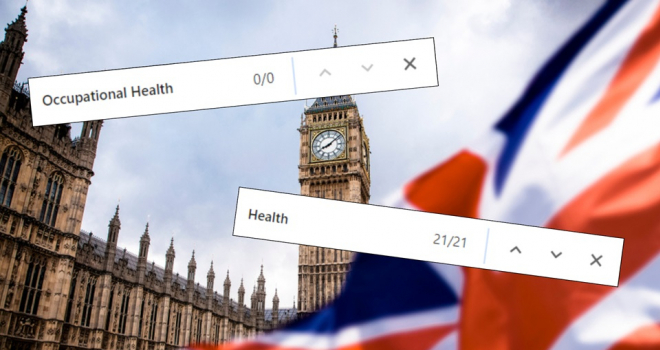
"It’s time for the Government to make good on its promise to be proactive and encourage more employers to move towards providing a better level of long-term sick pay and support during absence."
- Katharine Moxham, Spokesperson for Group Risk Development (GRiD)
Yesterday, Jeremy Hunt’s Spring Budget promised £5.9bn in additional funding to reform the way the NHS works; new digital health checks so high-risk individuals can screen for early onset conditions via the NHS app (which will become the single front door through which patients can access the NHS); £14mn investment for public sector research and innovation infrastructure, and more.
However, despite mentioning ‘health’ twenty-one times, he failed to boost provision for Occupational Health.
David Williams, Head of Group Risk at Towergate Health & Protection, felt the Spring Budget was a “missed opportunity for the government to recognise the enormous power of employee benefits in both reducing sickness and helping to improve the UK economy.” Although David welcomed investment into the NHS to modernise IT equipment and improve efficiency, “that was the only real nod to support in the healthcare space.”
“It would have been great to see measures announced in the Spring Budget which encouraged or incentivised businesses to support their employees.”
He believes that if the Government had built on the ‘Back to Work’ initiative in this way, the UK could have taken “great strides to reduce sickness rates and boost economic activity at the same time.”
Brett Hill, Head of Health & Protection at Broadstone, said the NHS is unlikely to see real near-term improvement despite the short-term funding boost announced, but “the Office for Budget Responsibility’s (OBR) forecast emphasises the business case for employers to invest further in the health & wellbeing of their workforce.”
“There were no further measures announced to boost the provision of Occupational Health services within businesses or to incentivise greater provision of employer-funded health benefits.”
Charlie MacEwan, Corporate Communications Director at WPA, agreed that “employee health is not just a health problem […] these benefits can boost productivity as well as the economy at little cost to employers.” However, WPA are pleased that there’s been no change to guidance surrounding health benefits that cost £50 or less.
WPA recently launched its innovative digital tool to reduce absenteeism via symptom checker, GP & primary care services, mental health support, physiotherapy access, and wearables. For employers, WPA Digital Health could be a “strategic investment,” extending healthcare benefits and aligning with corporate healthcare strategies.
“These benefits, referred to by HM Revenue & Customs as trivial benefits, are national insurance and benefit in kind tax free.”
Finally, Katharine Moxham, Spokesperson for Group Risk Development (GRiD), voiced her disappointment at the lack of actionable measures to address those who’re unable to work due to long-term health conditions or disability. “We still haven’t seen a response to the HM Treasury or HMRC ‘Tax Incentives for Occupational Health’ consultation, despite the Department of Work & Pensions (DWP) publishing this last November,” she exclaimed.
“Maybe they’re waiting for the Occupational Health Taskforce to take action, but there are certainly a couple of challenges they could have addressed that would make a difference.”
Katharine believes the definition for Occupational Health needs to widen to allow relevant products and services to be included within any tax incentives; “as an industry, we called for the removal of the benefit in kind charge for Group Critical Illness (CI), and the reinterpretation of optional remuneration arrangements for Group Income Protection (IP), so benefits and premiums aren’t taxed twice.”
“This will ensure employers can provide products and services that give employees support when they need it most, whilst saving the state considerable effort and cost.”
“It’s time for the Government to make good on its promise to be proactive and encourage more employers to move towards providing a better level of long-term sick pay and support during absence,” she concluded.
